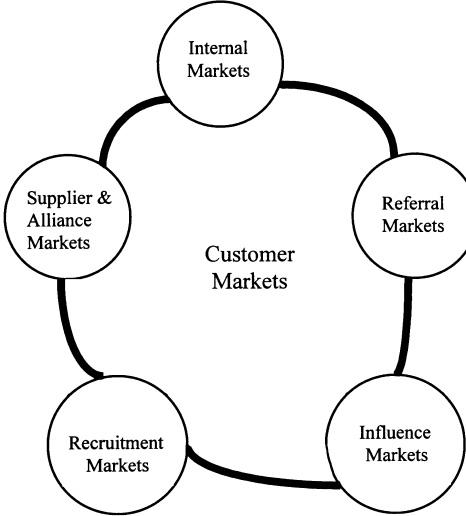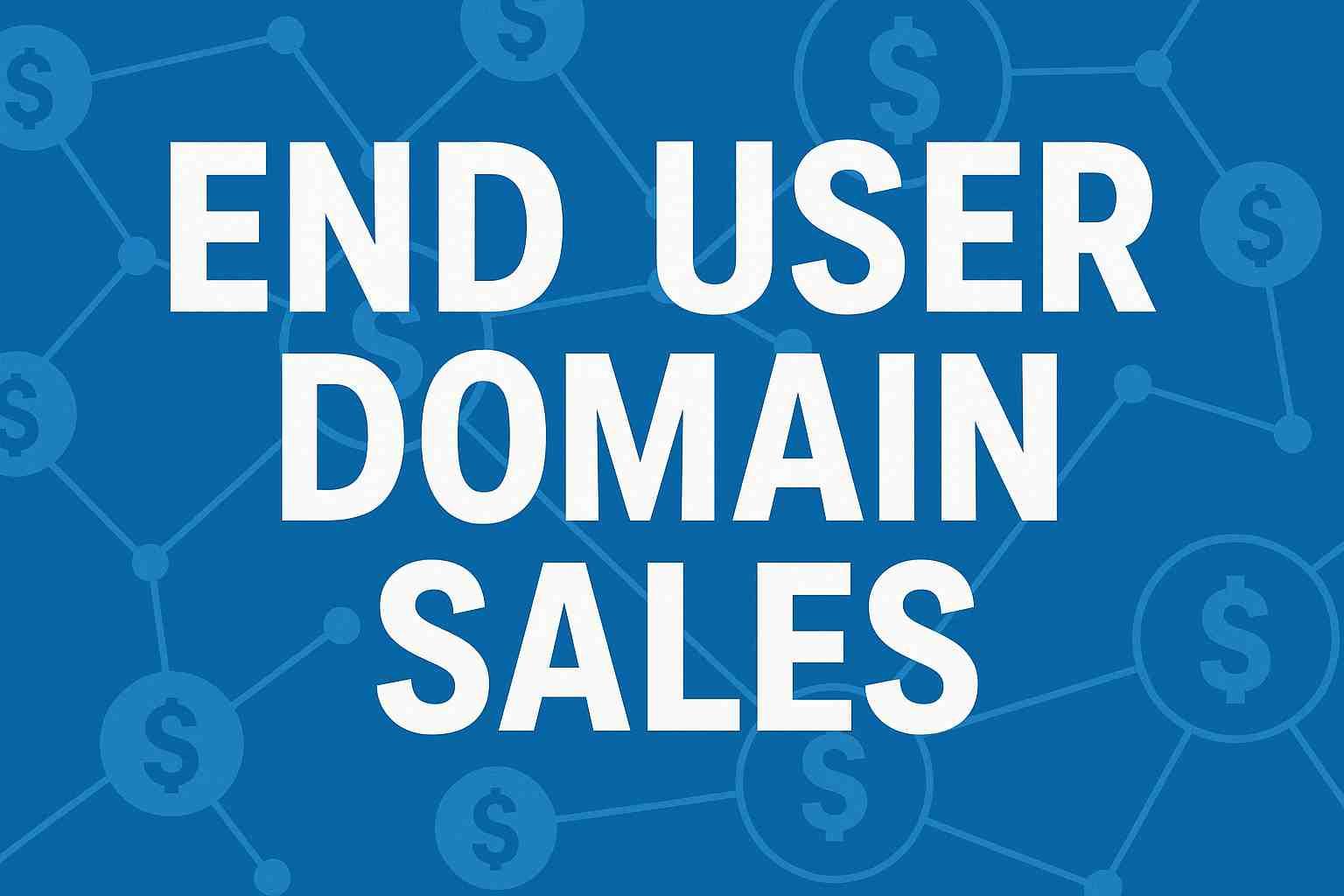Table of Contents
- Understanding the Value of Your Domain URL
- Identifying the Right Market for Your Domain
- Effective Strategies for Selling Your Domain Quickly
- Navigating the Legal Aspects of Domain Sales
- Maximizing Your Profit: Tips for Negotiating a Sale
- Q&A
- In Conclusion


Understanding the Value of Your Domain URL
Every entrepreneur or business should recognize the significance of their domain URL. A well-chosen domain doesn’t just serve as your online address; it embodies your brand, influences search engine optimization (SEO), and plays a critical role in customer perception. When potential customers see your domain name, it can create an immediate impression of professionalism and reliability. This makes selecting the right domain a crucial step in establishing your online presence.
To fully grasp the worth of your domain, consider a few key factors that contribute to its value:
- Length and Memorability: Shorter domain names are easier to remember, type, and share. They can significantly enhance user experience and brand recall.
- Keywords: If your domain includes popular search terms related to your business, its potential for organic traffic increases, thereby making it more valuable.
- Brandability: A unique and creative domain that aligns with your brand identity can attract more attention and foster loyalty among customers.
Additionally, the age and history of a domain can also impact its value. Domains that have existed for a longer period, especially those with a clean history devoid of penalties or spammy associations, tend to hold higher value in the marketplace. To provide clarity, here’s a simple comparison of different domain types based on their perceived value:
| Domain Type | Example | Estimated Value |
|---|---|---|
| Premium | example.com | $10,000+ |
| Brandable | mybusiness.com | $1,000 – $10,000 |
| Standard | mybusiness123.com | Less than $1,000 |


Identifying the Right Market for Your Domain
Choosing the appropriate market for your domain is essential for maximizing its potential value. Begin by considering the niche that your domain caters to. Domains that are closely aligned with specific industries or interests are often more appealing to potential buyers. For instance, a domain like “HealthyEatingTips.com” would attract businesses in the health and wellness sector. To get started, think about these aspects:
- Industry relevance: Identify the sector your domain fits into.
- Keyword strength: Analyze the keywords in your domain name that may attract specific user groups.
- Target demographics: Understand who your potential buyers are based on the domain’s content or offerings.
Once you have a clear idea of your domain’s niche, conduct thorough market research to pinpoint potential buyers. Utilize tools such as Google Trends and social media platforms to gauge interest levels in your chosen market. Additionally, consider competitor analysis; look at similar domain sales to grasp the market rates. This approach can help you forecast how much owners in related fields are willing to pay. Important factors to assess include:
- Current demand: Is there a growing trend or demand in the market?
- Price range: What are similar domains selling for?
- Future potential: Is the market likely to grow, making your domain even more valuable?
tailor your marketing strategy accordingly. Highlight the unique features of your domain when reaching out to potential buyers. Create engaging promotional content that emphasizes its strengths and appeal, and consider utilizing email campaigns and social media advertising to spread the word. A well-crafted approach can make your offering stand out in a crowded market. Remember to focus on:
- Clear messaging: Articulate why your domain is a valuable investment.
- Showcasing benefits: Demonstrate the advantages of owning your domain over competitors.
- Building relationships: Engage with potential buyers, offering insights and support to foster trust.
Effective Strategies for Selling Your Domain Quickly
To sell your domain quickly and effectively, first, ensure it possesses a strong value. Domains that are short, memorable, and relevant to popular keywords tend to attract higher offers. Conduct a thorough appraisal using online tools to estimate its worth. This can provide insights into competitive pricing based on market trends. Additionally, consider the domain’s age, length, and existing traffic when determining its price. By championing these factors, you can set a price that not only reflects its market value but also appeals to potential buyers.
Another essential strategy is to utilize reputable marketplaces and auction sites for listing your domain. Websites such as Namecheap provide vast exposure to potential buyers. Craft an appealing listing that highlights your domain’s advantages. Include key selling points like its SEO potential, historical traffic stats, and any branding possibilities. This proactive approach increases the likelihood of attracting serious buyers quickly.
Lastly, consider leveraging social media and your personal network for additional visibility. Share your listing on platforms like LinkedIn, Twitter, and Facebook to reach a broader audience. You can also engage in online forums and groups related to digital assets to find interested buyers. When promoting your domain, ensure to use eye-catching visuals and concise descriptions to draw attention. By employing these strategies, you enhance your chances of closing a deal swiftly while maximizing your profit.


Navigating the Legal Aspects of Domain Sales
When selling your domain, understanding the legal framework is crucial to ensure a smooth transaction. First and foremost, it’s essential to establish clear ownership of the domain name. This typically involves having access to the domain’s registration details through a registrar. Documentation proving ownership can include emails from your registrar and payment receipts. Before proceeding with any sale, perform a thorough check to ensure there are no pending disputes or claims against the domain that could complicate the sale.
Another key element is the negotiation of a sales agreement. This document should outline the terms of the sale, including the purchase price, payment methods, and any contingencies. Here are some important aspects to consider including in your agreement:
- Transfer Process: Specify how the transfer of the domain will be handled.
- Confidentiality Clauses: Protect sensitive financial information.
- Warranties: State any warranties about the domain’s use and ownership.
Additionally, it’s wise to consult a legal professional who specializes in internet law, particularly if you deal with high-value domains. They can guide you through potential legal pitfalls, such as trademark infringements. Here’s a quick overview of the potential legal issues and considerations you may encounter:
| Legal Consideration | Description |
|---|---|
| Trademark Issues | Ensure your domain does not infringe on existing trademarks. |
| ICANN Policies | Follow guidelines set forth by ICANN regarding domain transfers. |
| Tax Implications | Consider any tax liabilities arising from the sale. |


Maximizing Your Profit: Tips for Negotiating a Sale
When it comes to selling your domain URL, effective negotiation skills are crucial for maximizing your profit. Start by researching comparable domain sales to determine an appropriate price range. Use tools like GoDaddy’s Domain Appraisal or NameBio to gauge value based on length, keywords, and market demand. Being informed allows you to set a confident asking price, making you less likely to undersell your asset.
Effective communication is key during negotiations. When engaging with potential buyers, consider the following strategies:
- Listen actively: Understand buyers’ needs and motivations.
- Highlight unique features: Emphasize what makes your domain valuable, such as SEO potential or brand compatibility.
- Maintain professionalism: Keep negotiations respectful to foster trust.
Lastly, employ tactical closing techniques to seal the deal. Presenting options can facilitate a smoother transaction. You might want to utilize a simple table format to showcase various pricing tiers or payment structures:
| Payment Option | Description | Benefits |
|---|---|---|
| Full Payment | One-time upfront payment | Immediate profit realization |
| Installment Plan | Payments over several months | Attracts more buyers |
Utilizing these negotiation techniques will help you portray confidence and authority, ultimately leading to a more profitable sale. Remember, the goal is to find a win-win scenario where both parties feel satisfied with the transaction.
Q&A
Q&A: Selling Your Domain URL
Q1: What is a domain URL, and why would I want to sell mine? A1: A domain URL, or domain name, is your unique address on the internet, like www.example.com. Selling your domain can be a lucrative decision if you find that you no longer need it or simply want to capitalize on its potential value. Factors like a memorable name, high traffic, or specific keyword relevance can make it appealing to businesses and entrepreneurs.Q2: How do I determine the value of my domain URL? A2: Valuing a domain involves examining several key factors. You can start by researching similar domains that have sold recently, using valuation tools, and considering aspects like length, extension (.com, .net, etc.), keyword presence, and demand in your niche. Remember, a short, catchy name usually carries more value than a long or complex one.
Q3: What are the best platforms to sell my domain URL? A3: There are numerous platforms where you can sell your domain, each with its own advantages. Popular choices include GoDaddy Auctions, Sedo, and Flippa. These services allow you to list your domain, reach a wider audience, and often provide tools to facilitate the sale. Be sure to select a platform that aligns with your selling needs and preferences.
Q4: Should I use a broker to sell my domain URL? A4: Hiring a domain broker can be a wise choice if you have a premium domain or lack the time to manage the sales process yourself. Brokers have the experience and connections to negotiate better prices and streamline sales. However, keep in mind that they will typically charge a commission, so factor that into your decision.
Q5: What steps should I take to prepare my domain URL for sale? A5: Preparing your domain for sale involves several key steps:
- Research the market – Understand similar domain prices.
- Set a realistic price – Based on your findings, decide on your asking price.
- Ensure ownership – Verify your account settings at your domain registrar to confirm you can transfer ownership easily.
- Create a compelling listing – Highlight the benefits and potential uses of your domain in your listing.
Q6: What happens after I sell my domain URL? A6: Once you’ve sold your domain, the transfer process typically takes place through your domain registrar. You’ll need to coordinate with the buyer to facilitate the transfer of ownership and payment. After the transfer is complete, ensure you update any relevant details on your registration account and record your transaction for future reference.
Q7: Are there any legal considerations I should be aware of when selling my domain URL? A7: Yes, it’s important to understand the legalities involved in selling a domain. Ensure that the domain is free of trademarks or any legal disputes. It’s wise to draft a simple sales agreement outlining the terms of the sale, particularly if the transaction is significant. Consulting with a legal professional can provide peace of mind and ensure everything is above board.
Q8: Can I sell a domain URL that I bought from someone else? A8: Absolutely! If you legally purchased the domain and have the transfer rights, you can sell it as you wish. Just ensure that you have the proper documentation for ownership and that your terms of sale comply with any relevant policies from the registrar you used.
Feel free to reach out to experts or community forums if you have specific questions about domain selling; many are happy to share their insights!

